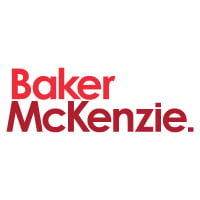

Senior contracts counsel | SLB



Ana Maria Galindo
Senior contracts counsel | SLB
How do you approach managing legal aspects during periods of instability or crises, and how does your legal strategy align with the broader business strategy to ensure the organization’s resilience?
During periods of instability or crisis, managing legal aspects effectively requires close alignment, collaboration, and efficiency across all teams. To uphold organisational resilience, the legal department must be deeply integrated with the overall business strategy. In the oil and gas industry, this alignment often involves balancing the drive for innovation with decarbonisation efforts, thereby contributing to a sustainable future. Legal teams need to employ strategic and innovative thinking in risk analysis, adapting to emerging energy models. This approach necessitates a rethinking of how commercial and operational departments conduct their activities, ensuring that legal considerations are seamlessly embedded within the broader business objectives.
What are the main cases or transactions you have been involved in recently?
In my current role, I oversee all global contract transactions related to well construction suppliers. This responsibility includes managing activities for international companies providing services to the Well Construction Division, encompassing the procurement of products and equipment for sub-divisions such as fluids, measurements, and equipment. I ensure that proper contractual risk management is in place for all suppliers and that necessary approvals are secured to protect SLB from significant legal, commercial, and financial liabilities. Over the past two years, my team and I have formalised over 36 contracts for services and products procured from leading companies.
What emerging technologies do you see as having the most significant impact on the legal profession in the near future, and how do you stay updated on these developments?
Artificial intelligence tools are increasingly being utilised for contract review, where systems highlight key deviations based on a pre-designed database of rules. Additionally, data analytics are being employed to identify trends and analyse previous agreements, providing the best alternative clauses depending on the contract’s scope. I work closely with the performance contracts team, which is leading these internal initiatives with support from the IT department. Continuing education is a priority for me, and I recently completed a postgraduate programme at CESA University on “Female Leadership on Boards of Directors.”
How do you prioritise diversity and inclusion within your legal department, and what initiatives have you implemented to foster a more inclusive and equitable work environment?
In 2016, I played a key role in establishing the Legal Support Centre in Colombia as one of its founding members. This position enabled me to ensure that we built a diverse team from the outset, bringing together lawyers from seven different nationalities: Colombia, the United States, Ecuador, Brazil, Mexico, Argentina, and Guyana. We also focused on creating an inclusive team by achieving gender balance and ensuring equity between female and male attorneys. Establishing an appropriate work environment was crucial, with opportunities provided based on merit and skills.
Well construction senior contracts counsel | SLB